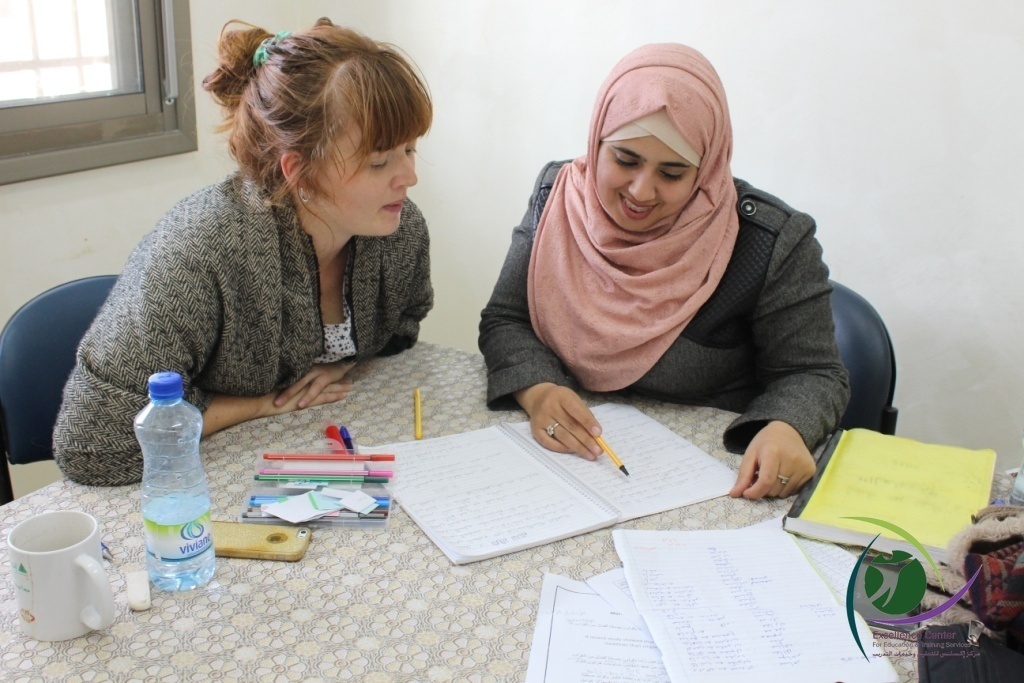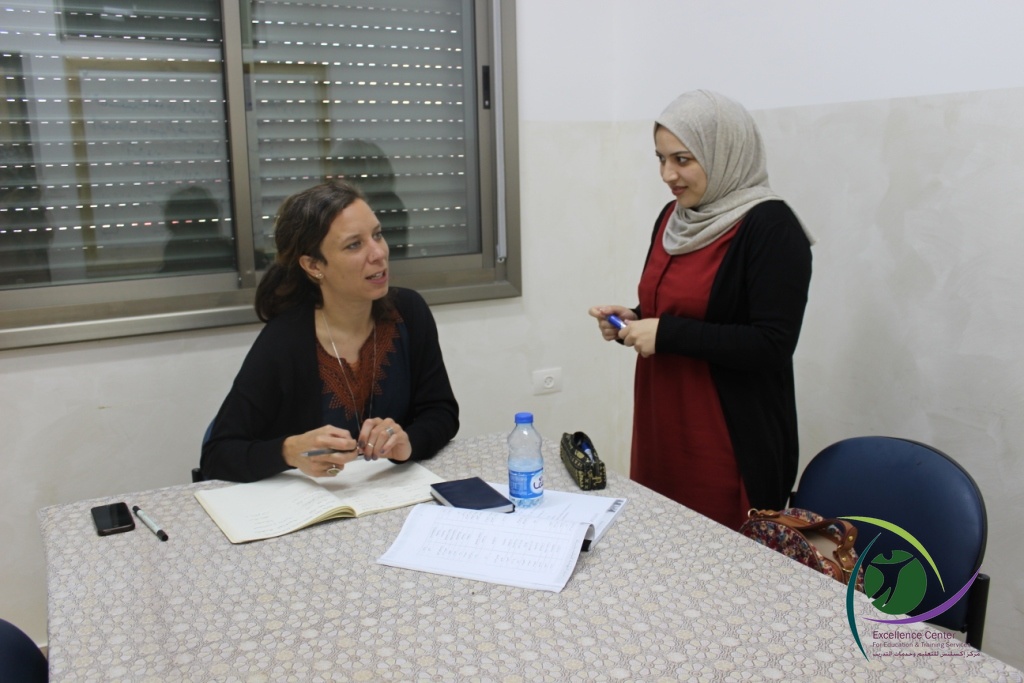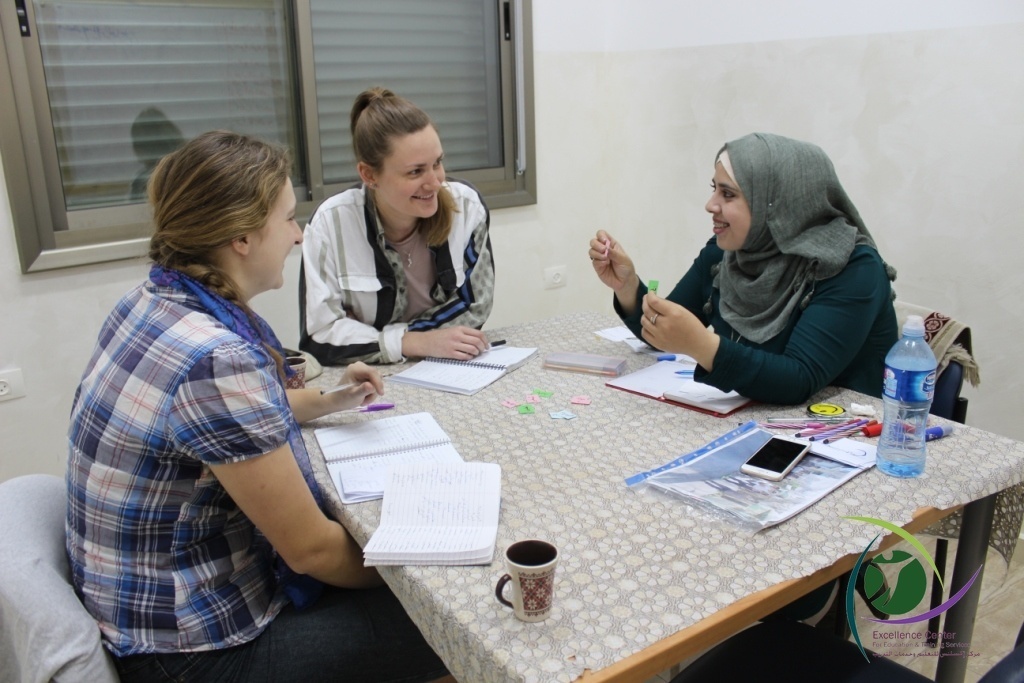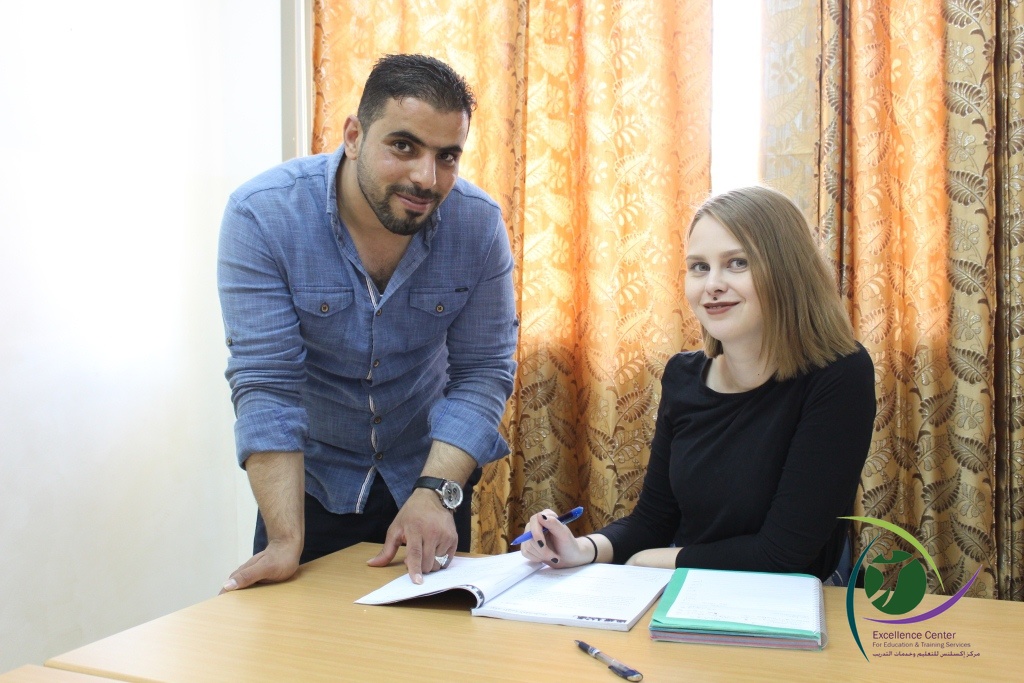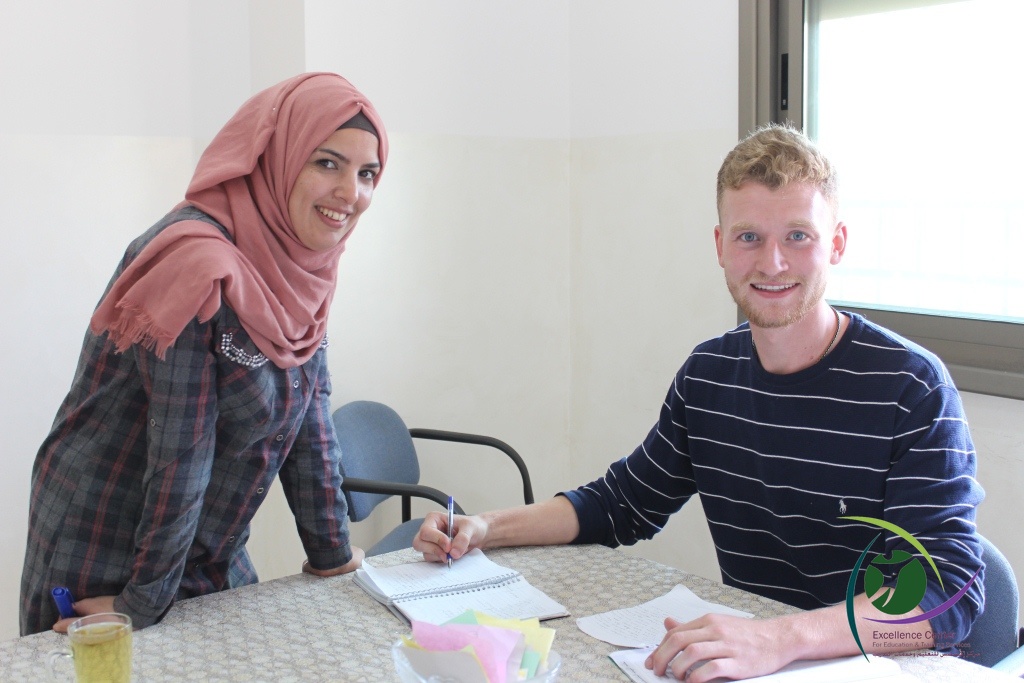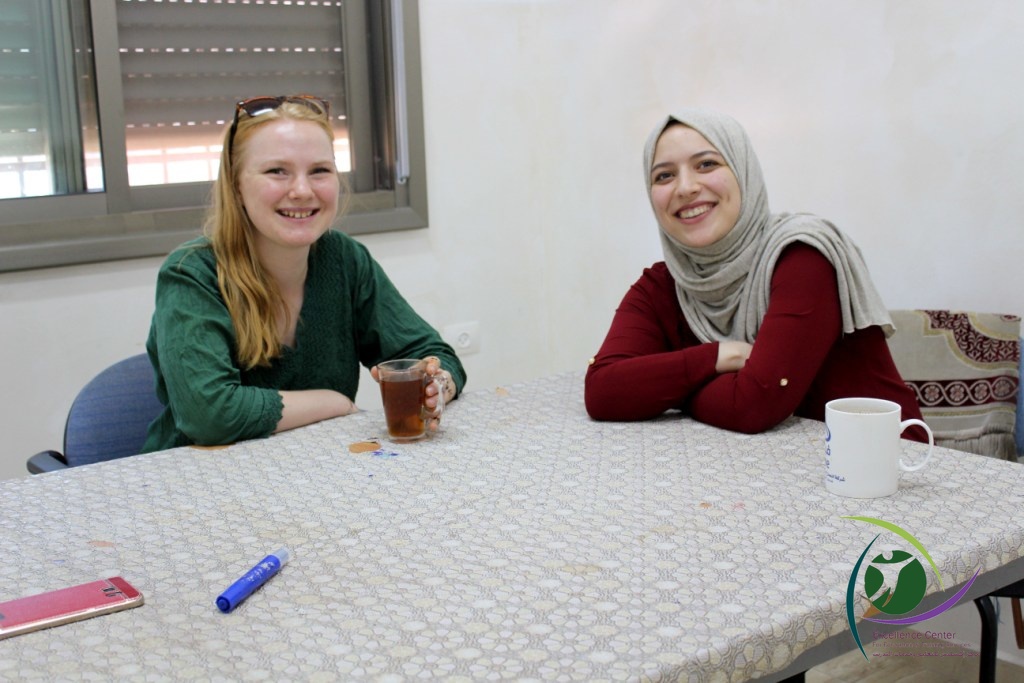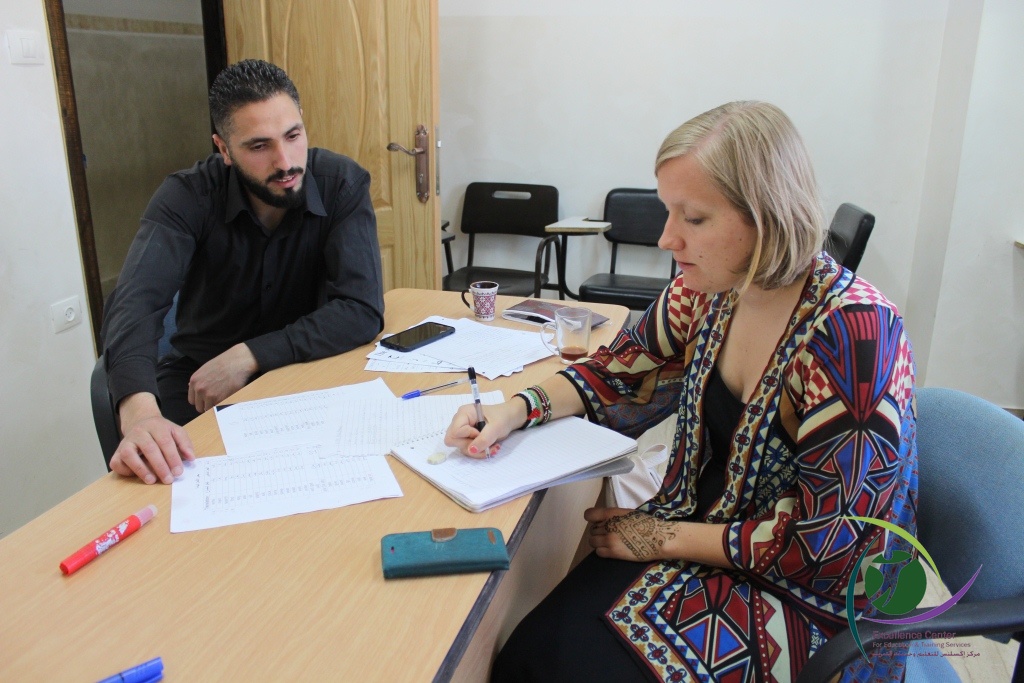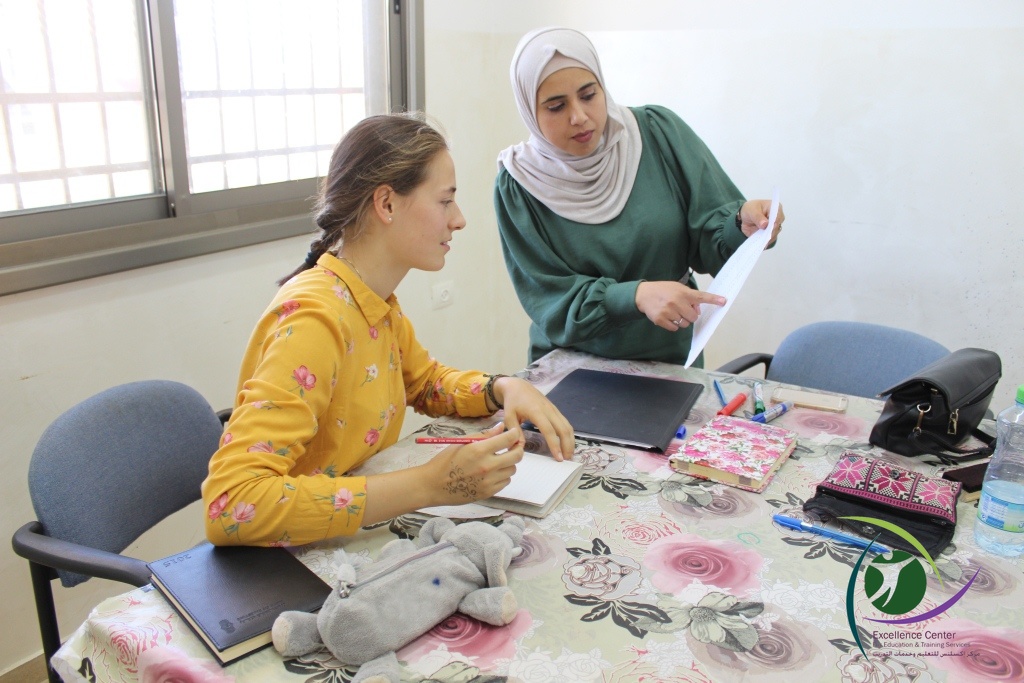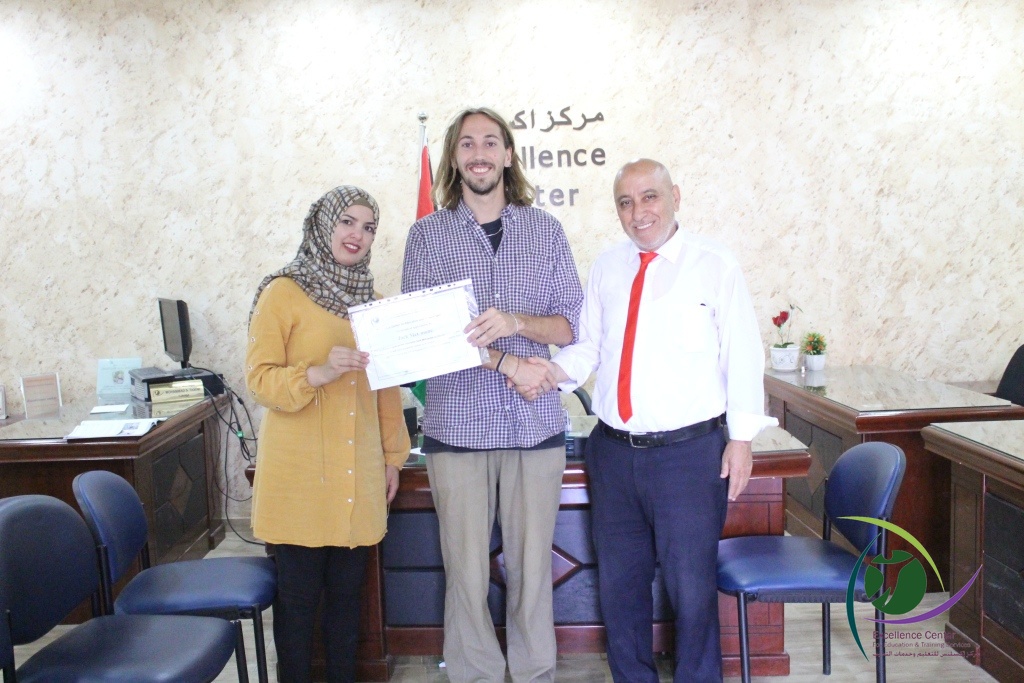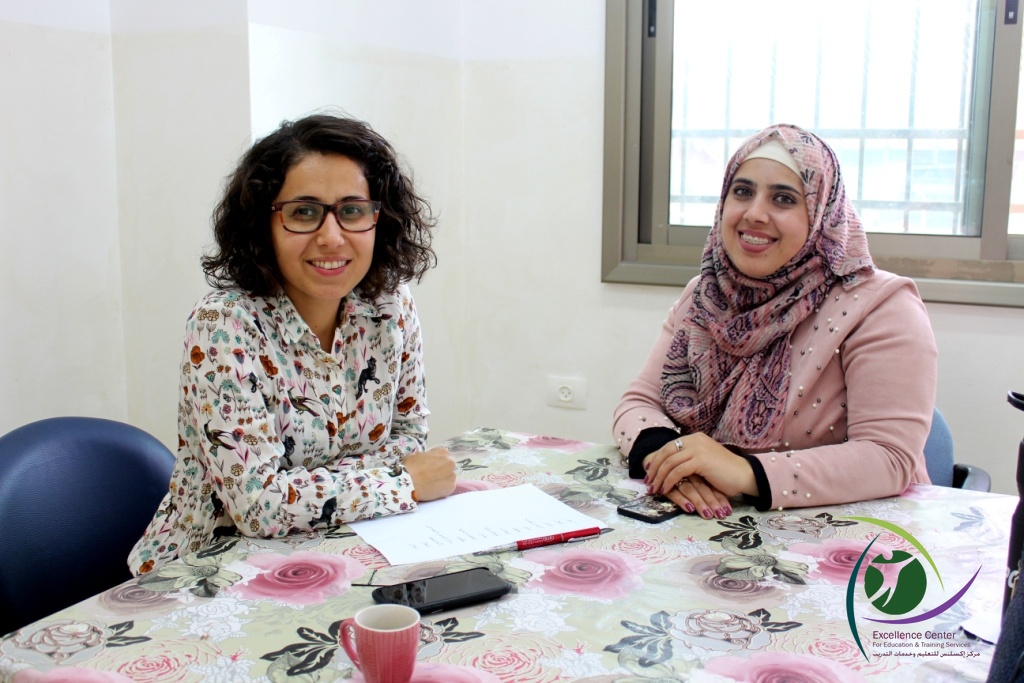Arabic Study Time you’ll receive while volunteering in Palestine:
Studying Arabic in Palestine is a big part of all our volunteers’ experiences. Whether you join us at the Excellence Center to teach English, Intern, teach a specialty through workshops at university or write for the Center about life in Palestine—Arabic study will be a part of what you receive from your time with us at the Excellence Center.
Customized Arabic Course
Whatever level of Arabic skills you bring, we will create for you adequate instruction. Some of our volunteers join us with prior Arabic knowledge and practice. Others come to us not knowing a single word of the language. If you are familiar with the Arabic script that is a wonderful start, but it is certainly not required.
One to One Arabic Courses in Palestine
Regardless of what program you come to participate in, you’ll receive three hours of free Arabic lessons a week (unless, of course, you are just here for Arabic study, in which case you’ll receive significantly more).
For the most part, your Arabic instruction will be one on one with one of our accomplished and guiding teachers. However, when it can be of more help or creativity, we may group you with another volunteer.
What Paulina and Maneesha said?
For instance, two of our recent volunteers, Paulina from Finland and Maneesha from the United States joined the Center at the same time, neither of them having prior knowledge of Arabic. Maneesha and Paulina were happy to be paired together,
As Paulina told us, “I am very glad to be together, it is less pressure and also we learn the same things together so we can practice off one another outside of our lessons.” She further feels that “two is the perfect number – three of us would be too many.”
It is not necessary to understand the Arabic script before beginning your language studies with us. Of course, the skill is a plus, but do not be worried if your starting anew. For Paulina and Maneesha, they are working mainly on basic greetings and sentences to help them get around town.
Learning to read the Arabic script
Paulina and Maneesha are also able to write down the phonetics of the words in English to help them learn. However, Victor from Belgium, who also came to EC with no Arabic knowledge, prefers to tackle the task of learning to read the Arabic script.
This works well in the one-on-one structure, as you are not put into a large class. Through this variety, we will cater your lessons to what you would most like to learn.
Modern Standard Arabic (MSA) or local Palestinian dialect
One of the decisions you will make regarding your Arabic lessons with us is whether you will study Modern Standard Arabic (MSA) or local Palestinian dialect. Modern Standard Arabic is understood throughout the entirety of the Middle East and is the form of Arabic featured on television, radio, and printed news.
However, just because it’s understood throughout the region, that doesn’t mean that everyone can speak it. When people speak in dialect, but you can only understand MSA, the communication will unfortunately suffer.
Palestinian local dialect
Conversely, knowing the local dialect allows you to speak with and understand the local citizens. However, should your travel to an area of the Middle East outside of the Levant, and should you try to speak Hebron/Palestinian dialect to the locals there, you may not be understood to them.
There are pros and cons to both paths of Arabic study. Your path will depend on your specific needs with regard to the Arabic language, be they travel, cultural, educational or professional.
Alexa Experience learning Arabic
Alexa from the United States participated in our “Volunteer to write about Palestine” program. Alexa had prior Arabic knowledge from previous studies in college. Additionally, she spent time living in the Middle East. While in University Alexa was taught Modern Standard Arabic, Thusly, while she volunteered with us at the Excellence Center Alexa elected to concentrate her studies in the local Palestinian dialect.
As she told us, “it is difficult because it has been many years since I studied Arabic in school, so first when I speak I am constantly pulling knowledge back from quite a while ago, often I almost have a word but it feels like it is stuck on the tip of my tongue.”
Alexa spoke to her studies in the local dialect after having only studied Modern Standard in the past, “after I recall what I am trying to say, it is often in MSA, then I must shift into dialect before I speak, sometimes it just feels like my brain is being twisted haha.” Alexa appreciated this language furtherance opportunity with EC: “I never had the opportunity or the need until now.”
Final remarks
We love to assist our volunteers in their study of Arabic in Palestine. Yes, it can be a difficult learning curve at the beginning, but the rewards you will gain from this learning will be many.
If you are new to Arabic, you’ll be thrilled the first time you are able to carry on greetings and conversations with locals. The same is true for those who are learning dialect with prior knowledge of MSA. And for those volunteers who arrive knowing all of the above, they’ll receive the same satisfaction when they confidently delve into a deep conversation.
